Flatulence in dogs can be a humorous topic. Yet, it’s a common concern among pet owners, especially when considering the comfort and health of the dog and its human family. While all dogs pass gas as a normal part of digestion, certain breeds are notorious for their propensity to fart more frequently and, shall we say, more robustly than others. This tendency can be attributed to various factors, including breed-specific digestive systems, diets, and eating habits. Understanding which breeds are more prone to flatulence can help owners take proactive steps in managing their diet and health to minimize uncomfortable episodes. In this article, we delve into seven dog breeds known for their gaseous emissions, exploring the reasons behind their flatulence and offering tips for managing it.
1. Boxer
Boxers are energetic and playful companions, but they’re also known for their tendency to pass gas frequently. This breed has a sensitive digestive system that can be easily upset by rapid eating, leading to excessive air swallowing. Furthermore, Boxers are prone to food sensitivities and allergies, which can contribute to digestive issues and subsequent flatulence. Feeding them a high-quality, easily digestible diet and using slow-feeder bowls to reduce the amount of air ingested during meals can help mitigate some of these issues. Regular exercise also promotes better digestion and can help reduce gas.

2. Bulldog
Bulldogs, with their distinctive flat faces, are predisposed to swallowing air while they eat, a condition known as aerophagia, which can lead to significant flatulence. Their compact digestive tract may also contribute to poor digestion, exacerbating gas production. Bulldogs benefit from diets formulated for sensitive stomachs and should be fed in a calm, quiet environment to encourage slower eating. Elevated feeding dishes can also help reduce the amount of air swallowed during meals. Regular, gentle exercise is recommended to aid digestion and minimize flatulence.
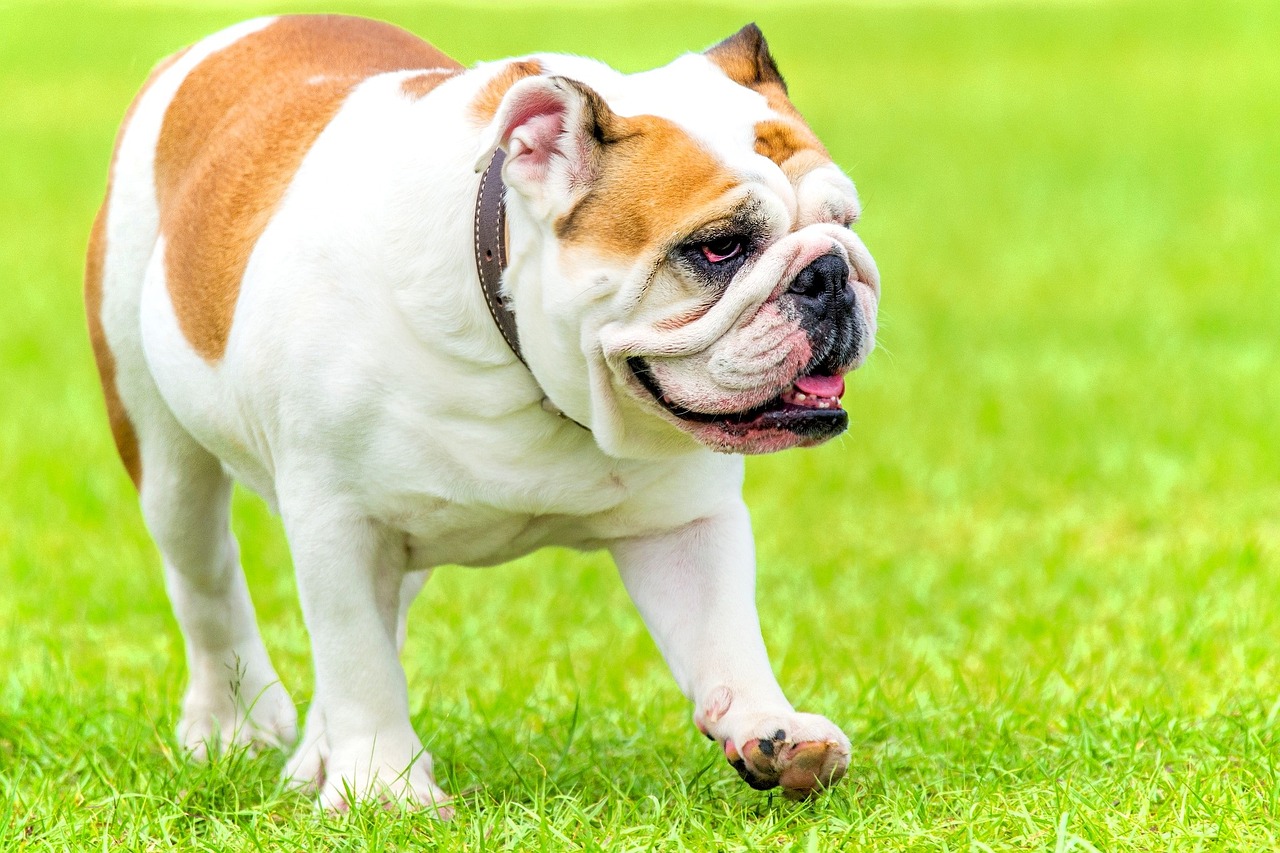
3. Pug
Pugs are another brachycephalic (short-nosed) breed that tends to swallow a lot of air while eating and drinking, leading to frequent flatulence. Their compact size and shape can also affect the efficiency of their digestive system. Like Bulldogs, Pugs benefit from slow-feeder bowls and diets tailored to dogs with sensitive stomachs. Small, frequent meals can help reduce gas, and avoiding foods that are known to cause flatulence in dogs, such as beans, spicy foods, and excessive amounts of dairy, can also be beneficial.
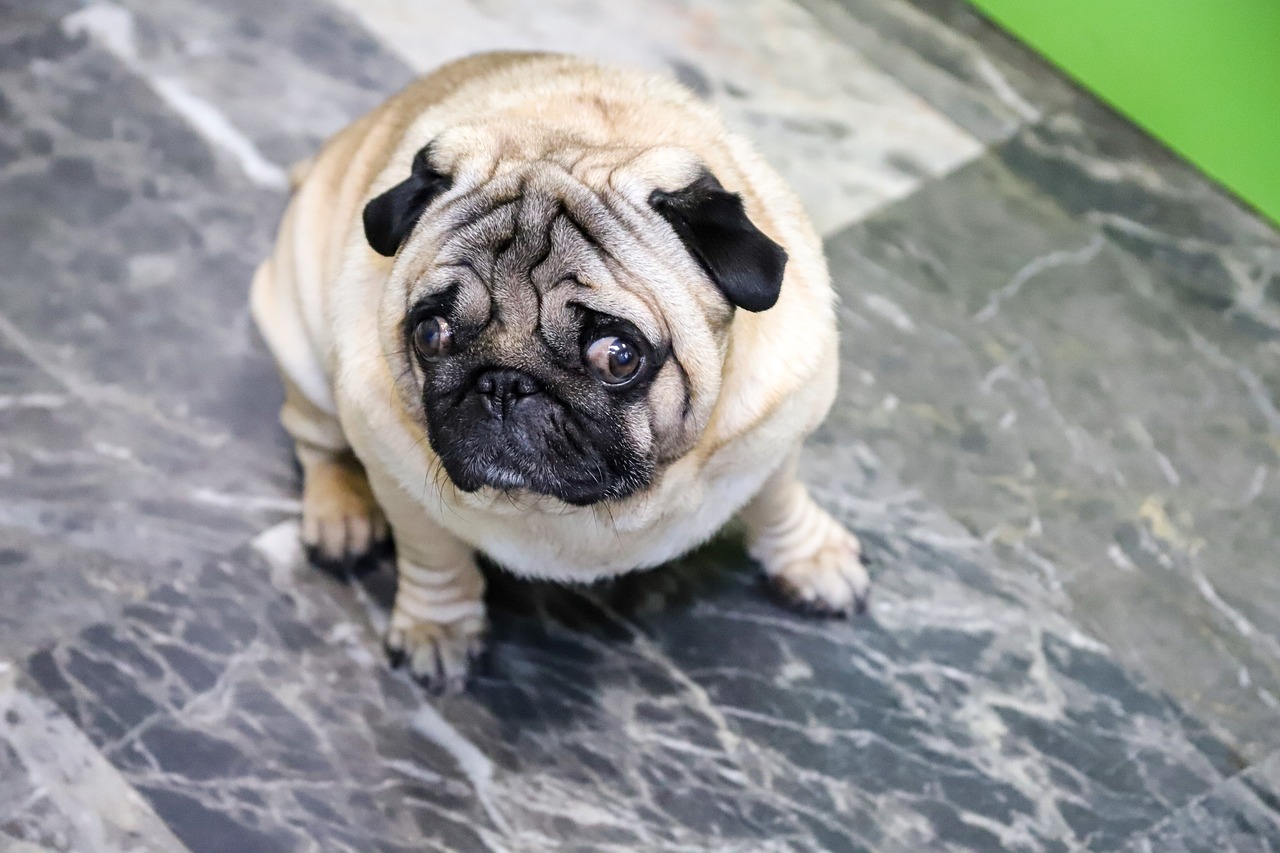
4. French Bulldog
French Bulldogs share many of the same digestive challenges as their brachycephalic counterparts, including a propensity for swallowing air and experiencing food sensitivities. Their flatulence can be managed through careful diet selection, avoiding foods that are high in fermentable carbohydrates, and ensuring they eat slowly to reduce air intake. Feeding a diet rich in fibre can also promote healthy digestion and reduce gas production, but it’s important to introduce any dietary changes gradually to avoid upsetting their sensitive digestive systems further.

5. German Shepherd
German Shepherds are known for their intelligence and loyalty, but they also have sensitive digestive systems that can make them prone to flatulence. This breed often suffers from food sensitivities and allergies that can disrupt their digestion and lead to gas. Feeding a high-quality diet made from easily digestible ingredients and avoiding common allergens can help. Additionally, probiotics and digestive enzymes may benefit German Shepherds by improving gut health and reducing gas production.
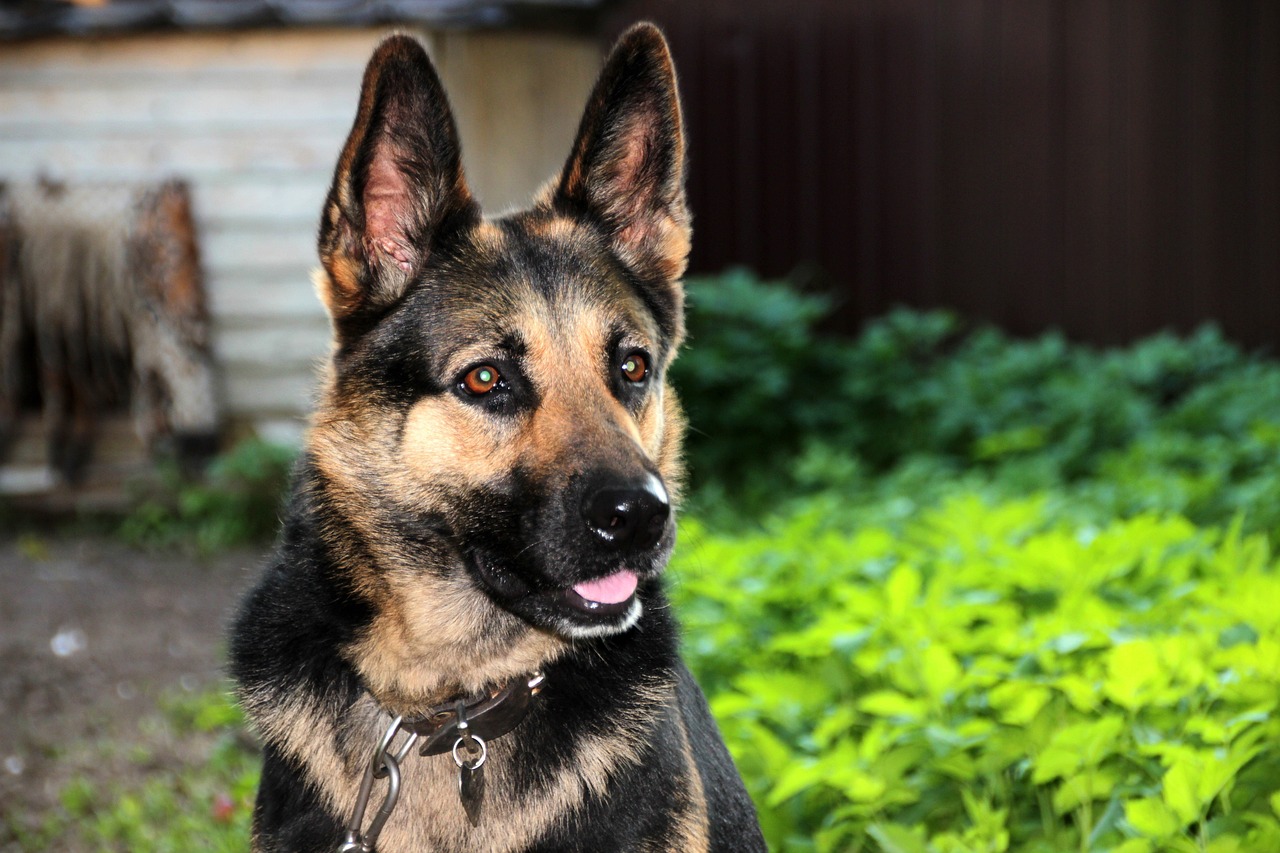
6. Labrador Retriever
Labrador Retrievers are hearty eaters with a penchant for gobbling down their food, which can lead to excessive air swallowing and, consequently, flatulence. Labs can also have sensitive stomachs, so choosing a diet that’s easy on their digestive system is crucial. Slow-feeder bowls, regular meal times, and avoiding table scraps and foods known to cause gas can help keep their digestive systems running smoothly. Regular exercise is also key to promoting good digestion and reducing flatulence in Labradors.
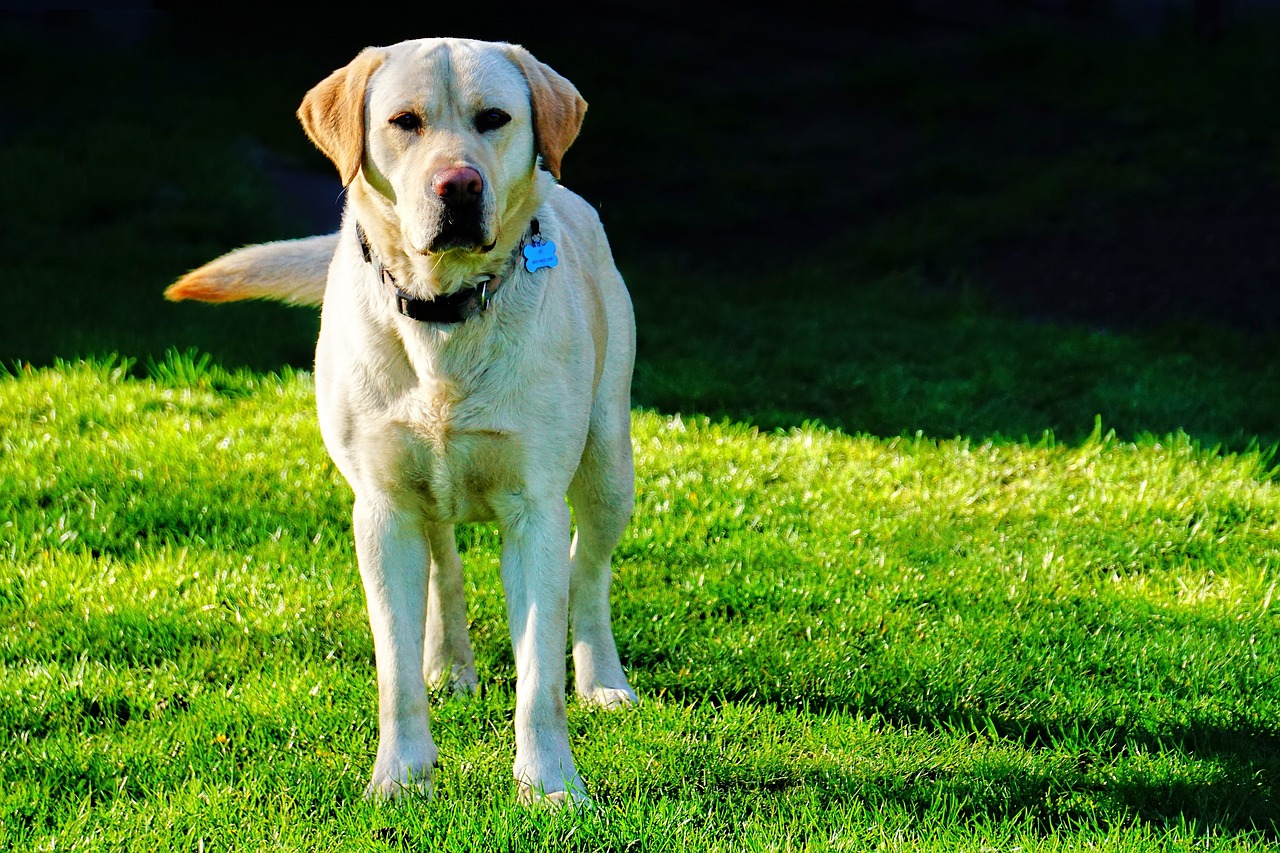
7. Rottweiler
Rottweilers are powerful, muscular dogs that can be prone to digestive issues, including flatulence, due to their diets and rapid eating habits. Ensuring they have a balanced diet that’s appropriate for their size and activity level, and feeding smaller, more frequent meals can help manage gas. Avoiding foods that are known to cause flatulence, such as soybeans, peas, and high-fat diets, can also make a significant difference. Regular exercise and routine veterinary check-ups can help identify and address any underlying health issues contributing to excessive gas.
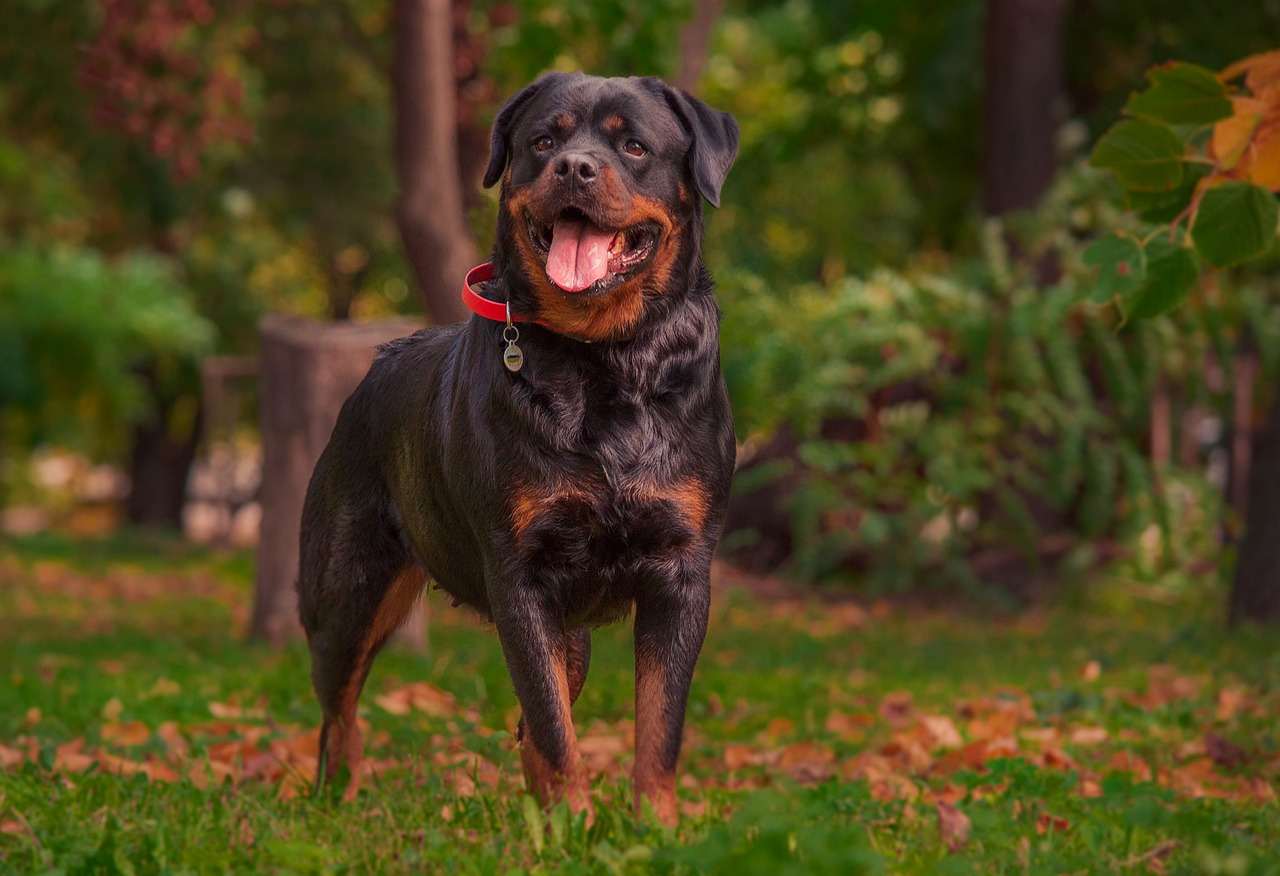
While flatulence can be an embarrassing or even humorous issue in dogs, understanding the breeds most prone to this condition and the underlying causes can help owners manage it effectively. Breeds like Boxers, Bulldogs, Pugs, French Bulldogs, German Shepherds, Labrador Retrievers, and Rottweilers may require special attention to their diet and eating habits to minimize gas production. Implementing strategies such as slow feeding, dietary adjustments, and regular exercise can significantly reduce the occurrence of flatulence. Additionally, consulting with a veterinarian can provide tailored advice and solutions, ensuring the health and comfort of both the dog and their human companions. By taking proactive steps to address the root causes of gas in these breeds, owners can help their furry friends lead happier, more comfortable lives.
 Toledo, United States.
Toledo, United States.